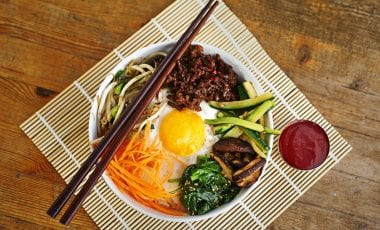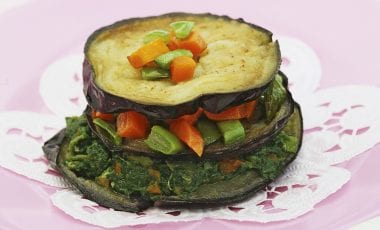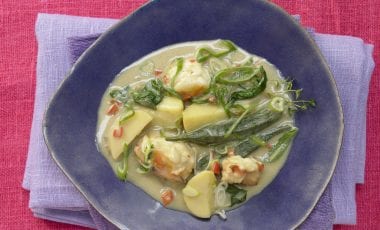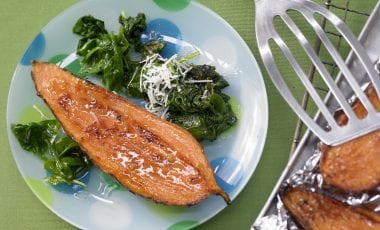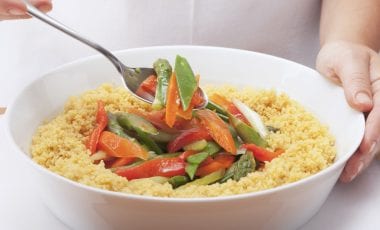We have all experienced it: the temperature drops and we suddenly start sniffing and sneezing. A strong immune system is key for avoiding certain illnesses during winter and eating a healthy and varied diet is one way to contribute to this. In this article, you’ll find out which foods have a positive impact on our immune defences and help protect us from undesirable germs.
A strong immune system: nutrition is key!
The body’s immune system does an immense amount of work on a daily basis without us even noticing it. Immune cells on the skin, in the blood or in gastric acid protect the body from bacteria, viruses, fungi and toxins. However, the immune system does need some help for it to function correctly: it requires vitamins, minerals and phytochemicals. The body cannot produce many of these micro-nutrients itself and needs to absorb them from the food in our diet.
Which foods strengthen our immune system?
These 10 foods provide valuable nutrients, which help support a strong immune system:
- Spinach
- Kernels and seeds
- Citrus fruit
- Probiotic food
- Nuts
- Garlic
- Berries
- Lentils
- Turmeric
- Ginger
Read on to learn more useful information about these immune system boosters!
With BioFresh technology, Liebherr refrigerators keep food fresh for an extremely long time. Vitamins and minerals are preserved longer than in vegetable drawers, which are really just drawers where it’s a bit cooler. You can find detailed information about BioFresh here: Refrigerator vegetable drawer
-
Spinach
Spinach is packed with considerable amounts of iron. Not as much as was once erroneously thought, but a lot all the same! This trace element is responsible for numerous metabolic processes, such as transporting blood and is therefore also important for a healthy immune system. Having an iron deficiency can lead to anaemia, and considerable health problems. Women – and pregnant women in particular – have an increased need for iron-rich foods such as spinach. A woman should consume 15 milligrams of iron a day; for men, just 10 milligrams is sufficient. In addition to leafy greens such as spinach, whole grain products, pulses, oil-bearing seeds and meat can also provide us with sufficient iron. But be careful: in order to be able to absorb the iron from the foods well, iron-rich foods should always be combined with foods rich in vitamin C. So add some bell peppers to your spinach salad or drink a glass of orange juice with your morning serving of oatmeal. Also bear in mind that a cup of coffee or black tea with breakfast can reduce iron absorption somewhat.
Other benefits of spinach: it contains vitamin A and also some vitamin C, which supports cellular resistance to viruses and bacteria, and are thus also beneficial for a healthy immune system. In your Liebherr fridge, this green vegetable will keep fresh for up to 13 days! 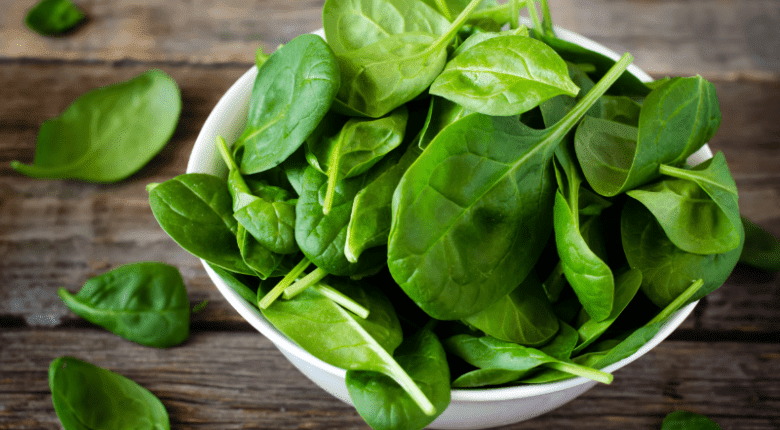
-
Kernels and seeds
Sesame seeds, flax seeds, pumpkin seeds, and sunflower seeds all have one thing in common: they contain a lot of zinc. This mineral helps to recognise and eliminate pathogens. That’s why it’s worth adding a few flax seeds to your muesli. Pumpkin or sunflower seeds can be sprinkled over salads and soups or added to bread and rolls. Oatmeal and wholemeal bread and pasta also contain zinc and can thus help you meet your daily recommended dose.
3. Citrus fruit
Colourful citrus fruits such as oranges, tangerines, and grapefruit can also help to keep cold viruses at bay. The vitamin C they contain can scavenge free radicals and help protect your body from infections. The juice of just a few lemons or oranges can be sufficient for achieving your daily requirement of vitamin C. There are also numerous phytochemicals located just under the skin of these refreshing fruits. You should however take care when eating grapefruit, as the bitter substance naringin that it contains can negatively interact with some medications. Nevertheless, exactly how vitamin C helps to fight against colds has not been sufficiently proven by studies but there are indications that the symptoms of the common cold could be eased by the vitamin. All in all, although the effects are not uniformly identifiable, citrus fruits certainly complement a healthy diet.
Make sure you don’t store your citrus fruit at too low a temperature – ideally it should be stored unpackaged at around 7 °C in the fridge. In this way, citrus fruit will keep for several weeks, depending on the type.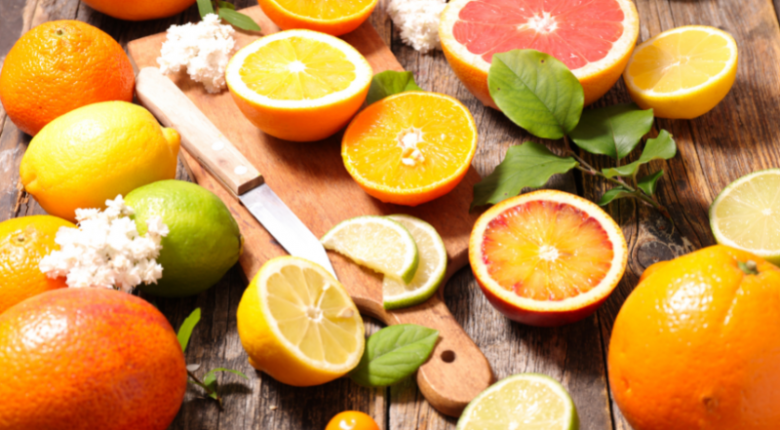
4. Probiotic food
What many do not know: a healthy intestinal flora is also crucial for a strong immune system. Too much stress, incorrect nutrition or frequent use of antibiotics can interfere with the balance of your intestinal flora, which are all the microorganisms in our intestines. Thanks to probiotics – living microorganisms in certain foods, which are beneficial to our health – this imbalance can be corrected again. It has also been proven that people who regularly include probiotics in their diets need antibiotics less often when they get a cold. Examples of probiotic foods include natural yoghurt, kefir, sauerkraut and kombucha.
5. Nuts
It’s a good idea to eat a handful of nuts, such as hazelnuts, cashews, Brazil nuts and walnuts, every day during the cold and flu season. Because nuts are great for the immune system! Walnuts can also be sourced regionally during winter. Keep a look out for the nearest walnut tree in your area. Thanks to the copper, vitamin E, zinc and selenium they contain, these popular energy sources also strengthen the immune system. What’s more, nuts contain beneficial omega-3 fatty acids, fibre and a lot of protein. Protein is important for building new immune cells.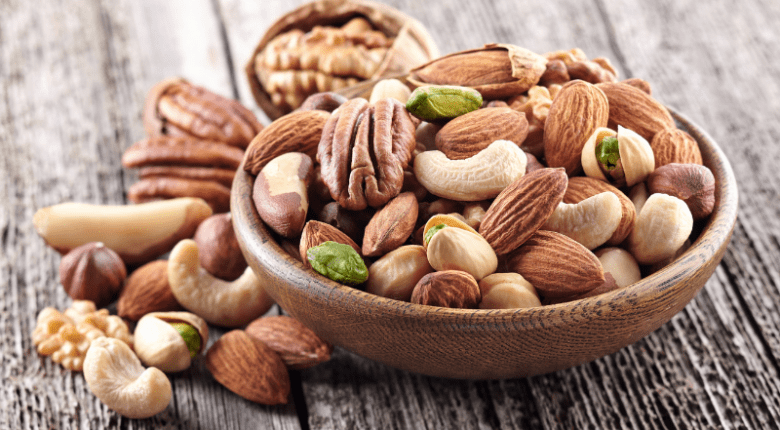
6. Garlic
Garlic is very well known – especially due to its smell, which some people find a bit overpowering. Although garlic breath may not be well received by your partner, this smell is actually very beneficial for our immune defences. Garlic is famous for being a natural antibiotic. Thanks to the healthy substances it contains, garlic can ward off illnesses like colds and flu. The substance allicin is not only behind garlic’s unmistakable smell, it is also responsible for its healing effects. Garlic is also very hardy and you can store it for up to 160 days in your BioFresh safe.
7. Berries
Strawberries, raspberries, blackberries and blueberries are very beneficial for your immune system and are also extremely tasty! The phytochemicals they contain are responsible for the positive effects they have. The plant pigment anthocyanin is especially noteworthy here. It gives berries their intense colour and has antioxidant properties. This means it intercepts free radicals and thus protects the body from the onslaught of bacteria and viruses. Berries are not in season in the winter months so you will have to find them in frozen or freeze-dried form. If you grow berries yourself in your garden, it is best to stock up during the summer ready for the winter.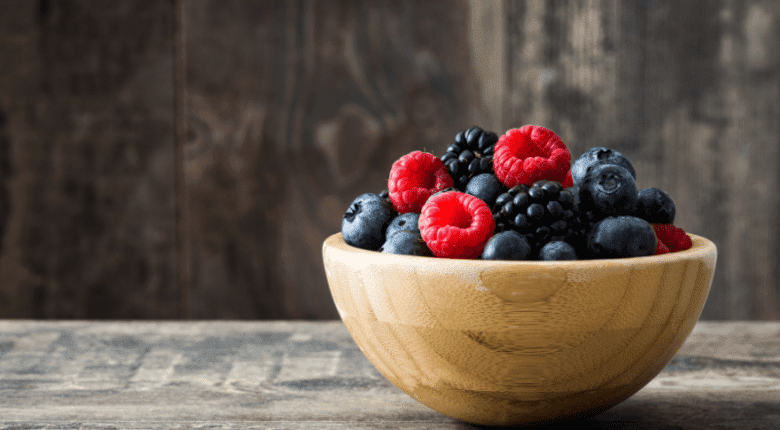
8. Lentils
Lentils have many important trace elements necessary for a healthy immune system. The colourful pulses are rich in zinc, iron and copper. Zinc, for example, reduces the likelihood of catching a cold and helps us recover more quickly when we do. Consuming just 200 grams of lentils a day is enough to ensure that your body gets the required amount of these three trace elements. Lentils are also very versatile: whether as a salad with spinach, pomegranate seeds and apples, as a hearty soup with potatoes and tomatoes or soaked overnight and puréed and used as pancake batter – recipes with lentils are endless.
9. Turmeric
The orange powder obtained from turmeric root is a powerful weapon against colds that is increasingly gaining widespread recognition. It has an antibacterial effect and can ward off harmful bacteria and get our immune system into shape. It also helps with digestive problems. When using turmeric, make sure you add some black pepper, as this helps our body absorb the beneficial substance curcumin. One very popular way to use turmeric is to make golden milk with it. 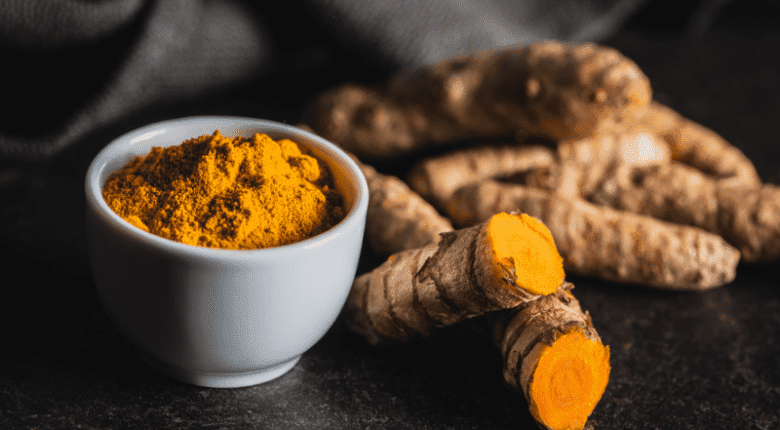
10. Ginger
Ginger has long been an important ingredient in traditional Chinese medicine and has now been recognised as a natural cold remedy in Europe as well. The popular tuber achieves its positive antioxidant and antimicrobial effects due to the essential oils and gingerol it contains, which give ginger its spicy taste. Its high amounts of potassium, calcium, phosphorus, iron and various vitamins are also especially beneficial. Whether consumed as a tea, a spice in curries or soup, or intensively in a shot, the options for using ginger are many and diverse.
You can find an especially effective recipe that combines the power of ginger, turmeric, and citrus fruit here:
Food can boost our immune system. But are there more health benefits?
Not only does a healthy and varied diet strengthen the body and its immune system, it also protects against disease. Plant-based foods in particular support our body’s defences. However, a balanced diet is not a miracle cure and is only one of many factors that help strengthen the immune system.
In addition to the foods listed, getting enough sleep, exercising in the fresh air, drinking enough water and washing your hands thoroughly are also all important factors that support a healthy immune system. The amount of sleep your require per night depends very much on you personally. Pay attention to how your body feels. It is also important to recognise your own needs with regard to fluid intake. However, as a rule, you should aim to drink one and half litres per day. If you follow all these tips and also take the time to be out in the fresh air for at least half an hour a day, you will have done everything in your power to fight against cold viruses. Stay healthy!
